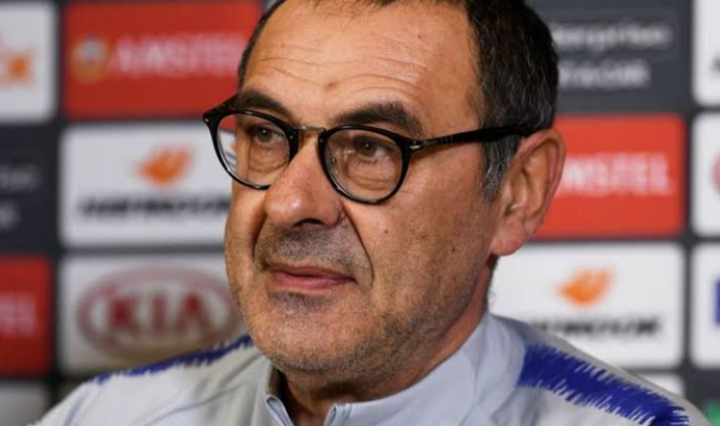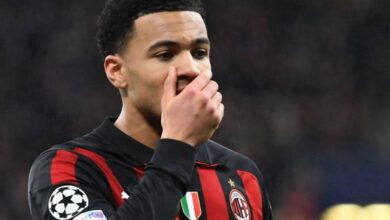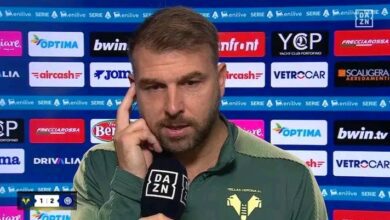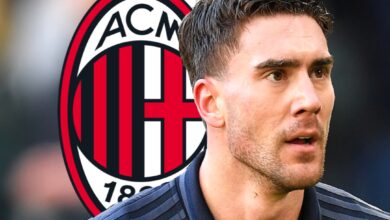The Situation at Milan: Fonseca’s Increasing Instability

In the world of professional football, the dynamics of coaching positions can shift dramatically based on the results and performances of the team. Following AC Milan’s disappointing 2-0 defeat against Napoli, a wave of uncertainty has swept over the club, particularly concerning the future of head coach Paulo Fonseca. Amidst growing speculation regarding his job security, various potential replacements have surfaced, with Maurizio Sarri emerging as a prime candidate for the position.
The Situation at Milan: Fonseca’s Increasing Instability
After the game against Napoli, which saw Milan slip further in the title race, doubts about Fonseca’s ability to lead the team are mounting. Various reports, including insights from the Milan News website, suggest that the management is already considering alternatives. The 2-0 loss to the league leaders was not just a setback in terms of points; it exacerbated the pressure on Fonseca’s role at the club. As the team struggles to meet its ambitious targets, the question remains: how much longer can Fonseca retain his position?
Enter Maurizio Sarri
Maurizio Sarri, who has been a free agent since he resigned from Lazio on March 14, 2024, presents a compelling option for Milan’s management. Sarri, recognized for his tactical acumen and ability to develop players, could be the man to implement the necessary changes at Milan if Fonseca is shown the door. His history with clubs like Napoli and Lazio, where he came close to winning the Scudetto, showcases his capability to operate in high-stakes environments.
There are compelling reasons why Sarri might be the perfect replacement for Fonseca. Firstly, his tactical philosophy aligns well with the current Milan squad, constructed with a specific formation in mind. Sarri is known for his preference for a 4-3-3 formation—a system that enables fluid attacking play, which is designed to maximize offensive opportunities while maintaining defensive solidity.
Adapting to Milan’s Style
Milan’s current squad was assembled to function optimally within a defined tactical setup, revolving around both individual talents and collective organization. Sarri’s approach marries well with the club’s aspirations, aiming for a dominant offensive playstyle that prioritizes both creativity and effectiveness.
With a formation that incorporates a four-man defense, a three-man midfield, and a striking system featuring two dynamic wingers and a central forward, Sarri’s tactical preferences would seamlessly integrate with the existing team’s strengths. Notably, both Morata and other players in the squad possess the versatility to thrive under Sarri’s guidance, likened to previous players he successfully coached, such as Higuain and Immobile during his time at Napoli.
The Player Connection: Loftus-Cheek and More
Moreover, Sarri’s familiarity with certain Milan players adds an extra layer of potential compatibility. He has previously worked with Ruben Loftus-Cheek during his tenure at Chelsea, where Loftus-Cheek credited Sarri for his development, expressing a strong preference for the style of play Sarri advocates. “The season with Sarri was the best,” Loftus-Cheek remarked, highlighting the levels of trust and understanding established during their time together.
In addition to Loftus-Cheek, Sarri’s relationships with other Milan players might improve team morale and cohesiveness, facilitating a smoother transition should he take the helm. This established rapport with specific players can often lead to shorter adjustment periods and quicker results, an essential aspect for a Milan side desperate to regain its competitive edge.
Financial Viability of Sarri’s Appointment
From an economic standpoint, appointing Sarri could present a financially sustainable option for Milan. Fonseca’s firing would entail a significant financial outlay—approximately 12 million euros gross due to his contract’s terms—an expenditure that might compel the management to seek a more economically feasible head coach. In comparison to other leading candidates, such as Massimiliano Allegri and Thomas Tuchel, Sarri’s salary expectations are relatively moderate, making him a more attractive choice in the current fiscal environment.
The Pressure of Results
As the current season progresses, the urgency for Milan to rectify its course intensifies. With the club trailing behind their direct rivals in the race for the Champions League spots, any managerial change would ideally aim not only for immediate defensive organization but also to rekindle the attacking flair characteristic of Sarri’s teams. While Milan’s declared season objective revolves around reclaiming a position among the Champions League entrants, the overarching ambition remains to secure the Scudetto—a title that has eluded them for too long.
Morata’s Underwhelming Performances
Compounding the pressure felt by Fonseca is the noise surrounding Alvaro Morata’s form. Following the defeat to Napoli, fans expressed dissatisfaction with Morata’s impact on games. In response to the defeat, Morata remarked, “All we can do is work harder to be better,” highlighting the team’s need for a collective effort to rise to the challenge of the ongoing season.
Milan’s struggles against Napoli exemplified the side’s issues—both in execution and maintaining composure during crucial moments. With key absences affecting the squad’s performance, the hope was that the team would rally together to make a statement. Yet, the outcome revealed a stark reality, showcasing the need for a comprehensive approach to key matches.
Fonseca’s Resilience and Responsibility
Amidst growing scrutiny, Fonseca remains resilient. In his post-match analysis, he acknowledged his responsibility for the defeat, commending the fight exhibited by his players despite the unfavorable outcome. “I’m always responsible for what happens on the pitch,” he stated, indicating his awareness of the stakes and his commitment to steering the team back on track.
Conclusion: A Pivotal Moment for Milan
As Milan finds itself at a crossroads, the question of managerial stability looms large. Whether or not Fonseca will remain at the helm remains uncertain, but what is evident is the urgency for improvement. Maurizio Sarri’s profile as a potential replacement offers a tantalizing prospect for a club that seeks to reclaim its status as one of Europe’s elite football institutions. The coming weeks will prove pivotal, not only in determining Fonseca’s fate but also in the quest for a cohesive strategy that could deliver much-needed success on the pitch.



